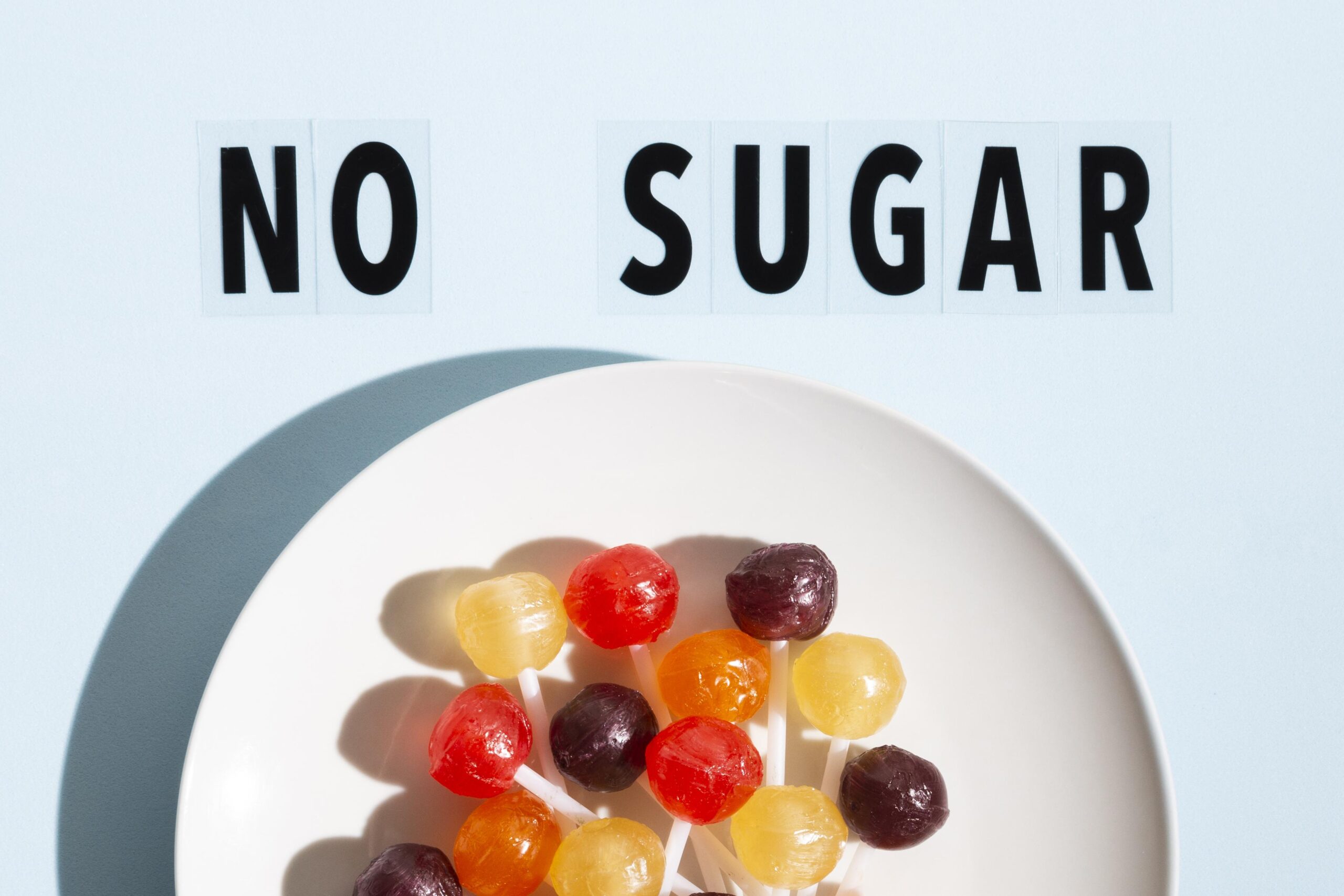
The relationship between diabetes and sugar is as complicated as an old Bollywood drama—one moment, it’s the hero of our taste buds, and the next, it’s the villain wreaking havoc on health. This love-hate situation is everywhere—in desserts, beverages, snacks, and even hidden in foods we wouldn’t suspect. Yet, controlling sugar intake is a transformative step toward improved health for people with diabetes.
The bold and practical no-sugar challenge can help reset habits, address cravings, and control blood sugar levels. This challenge implies understanding why sugar is bad for people with diabetes, making the process enjoyable and manageable, and visiting a diabetes doctor.
Why Sugar is the Villain for Diabetes Patients
For individuals with diabetes, sugar is not just about empty calories; it’s a direct disruptor of health. Here’s why sugar deserves a time-out:
- Spike Blood Sugar Levels: Sugar causes rapid glucose surges, stressing the body’s insulin management.
- Increases Risk of Complications: Over time, excessive sugar intake can lead to complications such as neuropathy, kidney issues, and heart disease.
- Promotes Weight Gain: Sugar-packed foods add calories without nutrients, making weight management harder.
Understanding these effects helps build the motivation to reduce or eliminate sugar from the diet.
The No Sugar Challenge: What’s the Buzz?
The no-sugar challenge is about eliminating sweeteners and sugars from regular meals. Consider it a much-needed break for your body and a detox for your taste buds. This process involves more than just avoiding sweets; it also increases awareness of the hidden sugars in processed foods, sauces, and beverages.
Even though the first few days may seem like a test of willpower, the advantages—such as increased energy, better blood sugar regulation, and even glowing skin—make the effort worthwhile.
How to Survive (and Thrive) Without Sugar
Going sugar-free may seem intimidating, but with some innovative strategies, it’s entirely doable.
- Plan Balanced Meals: Focus on whole foods like fresh vegetables, lean proteins, whole grains, and healthy fats to keep you full and satisfied.
- Hydrate Wisely: Swap sugary beverages for water infused with lemon, mint, or cucumber. Herbal teas are another refreshing option.
- Spot the Hidden Sugar: Read labels carefully; search for terms like high fructose corn syrup, maltose, or cane sugar on the label.
- Batch Cook Meals: Preparing meals at home ensures you control what goes into your food.
Sweet Substitutes: Alternatives for Sugar
Who says you have to give up sweetness entirely? Here are some diabetes-friendly alternatives to keep things interesting:
- Stevia: A natural sweetener extracted from a plant, great for tea or coffee.
- Jaggery Powder in Moderation: Unrefined and less processed, but should still be consumed sparingly.
- Dates or Figs: Use mashed dates in desserts for natural sweetness.
- Fresh Fruits: Berries, apples, and oranges provide a natural sweetness when paired with fiber.
Battling Cravings: Mind Over Sugar
Sugar cravings are often more about habit than hunger. Here’s how to tackle it:
- Protein First: Eat protein-rich snacks like nuts or boiled eggs to curb sugar cravings.
- Distract Yourself: Cravings usually last about 20 minutes. Go for a walk, call a friend, or practice a hobby.
- Sweet but Healthy: Keep a piece of dark chocolate (70% cocoa or more) for an occasional treat.
- Mindful Eating: Slow down while you eat, and never hurry. Chew thoroughly, and enjoy each bite to reduce overeating.
Adding Some Fun to the Challenge
Make the no-sugar challenge less daunting by adding a little twist:
- Challenge a Friend or Family Member: Compete to see who can go the longest without sugar.
- Journal the Journey: Record how you feel each day. It’s motivating to see progress.
- Reward: No, not with sweets! Get a treat like a new book, a spa day, or a fun outing.
Don’t Forget Professional Guidance
Professional advice from a diabetes doctor who gives specific solutions to your health needs is as important as using home remedies and making lifestyle changes. Since diabetes treatment differs from person to person, obtaining medical advice is essential.
Complete advice on dealing with diabetes, including diet plans, lifestyle advice, and diabetic foot care, is available at Dr. Durai’s Diabetes and Foot Care Clinic. Their staff ensures each patient gets individualized advice based on their lifestyle and health status. Make an online or in-person consultation appointment to start living a sugar-free, healthier lifestyle.
A Sweet Conclusion
Starting a no-sugar challenge is more than just changing your diet; it’s a commitment to improving your health. Better health, better diabetes management, and more energy are the rewards that outweigh the initial difficulties. Remember that the objective is not to give up life’s sweetness but to discover healthier ways to enjoy it.







